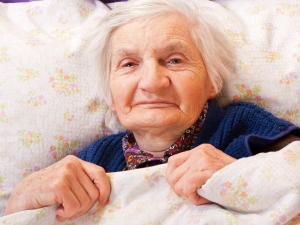NHS Continuing Healthcare Funding (CHC)
What is it, how much is it and where does it come from?
It is funding granted by the NHS, which regionally means the local Clinical Commissioning Group. It is granted following an assessment process to determine if the person has a “primary healthcare need”. The amount awarded should cover the whole of the cost of the persons assessed needs, so how much they get depends on their needs, but if that person is in a care home, should cover the total cost of the care home fees.
With care home fees at approx £700-£1,000 per week, this is highly valuable and the process is complex. It is not determined on any one condition, but rather how that condition presents and therefore how challenging it is to care for that person. It takes into account how that person is managed by a professional carer, so commonly caring for a loved one at home can be harder, as their domestic home is not set up with all the professional equipment that a care home would be. And a loving spouse or child as carer is not the same as a team of professional carers, who are able to work around the clock, although the loving spouse or child carer will no doubt do an incredible job because of the nature of that loving relationship.
The case law relating to the funding goes back to 1999, when a car accident survivor named Pam Coughlan, who lives in Exeter went to Court to secure the funding for her care. The case was also about where she should live, as she was being asked to move when she had been promised a home for life.
Following the Coughlan case, the Parliamentary and Healthservice Ombudsman has produced a number of reports in relation to this funding, including that there should be a national criteria. The first National Framework was produced in 2007, it was updated in 2009 and amended with the changes to the NHS in 2012. It has meant that there have been a number of cut off dates, the most recent one being March 2012, so unless the case was submitted to the CCG prior to 31 March 2013, it cannot be considered for a period earlier than 31 March 2012.
With the last cut off date, nationally the NHS received an additional 54,000 cases, which is about 10 times the normal amount and the CCGs have been dealing with the backlog. After they received all the submitted cases, they had to work through them all, make sure they had all the right forms and paperwork with authorities to act, so they could know how big the issue was, this took months. Having done that, they went to the commissioners to ask for resources, as having a 20 year backlog is unreasonable, so they needed extra resources to work through the cases and once they had done that, would need extra resources to pay out any successful retrospective claims. They are part way through that bit of the process and some of the cases are now being accepted and paid, so the case can be closed.
So where are we now? You can still make a claim for CHC, you can make a retrospective claim, even if someone has died, but only back as far as 1 April 2012. So if you are receiving care, whether in a care home or at home, then you can be assessed, funding is only granted if you have a “primary healthcare need”, ie you are very unwell and require a lot of skilled support from carers. With the Care Act 2012, Social Services now have a duty to refer you if you may be eligible.
The process is complicated and can be distressing for family members, as they are already upset by their loved one being unwell, any additional stress on top of that is challenging. Whenever I represent the person or family in an application for CHC, I never lose sight of the loved one at the centre of this or the upset that the whole family are coping with.






Great advice – CHC is a complex area for people yet you’ve done a great job of explaining it clearly here! How long does the appeal process take in your experience?
Great advice – CHC is a complex area for people yet you’ve done a great job of explaining it clearly here! How long does the appeal process take in your experience?
Jamie
Thank you for your kind comments.
Sadly the answer to that question is that it varies from CCG to CCG. I have had them take as little as 4 months and as long as 18 months.
Hilary